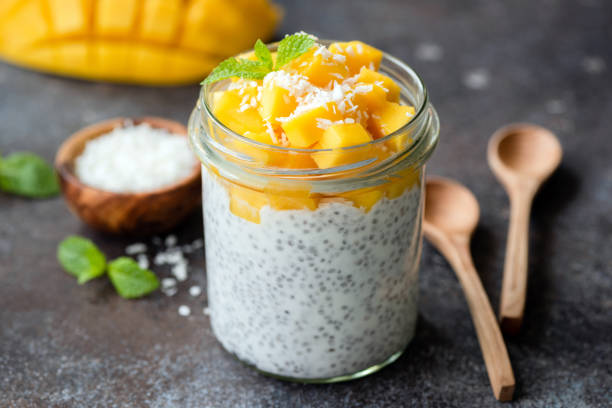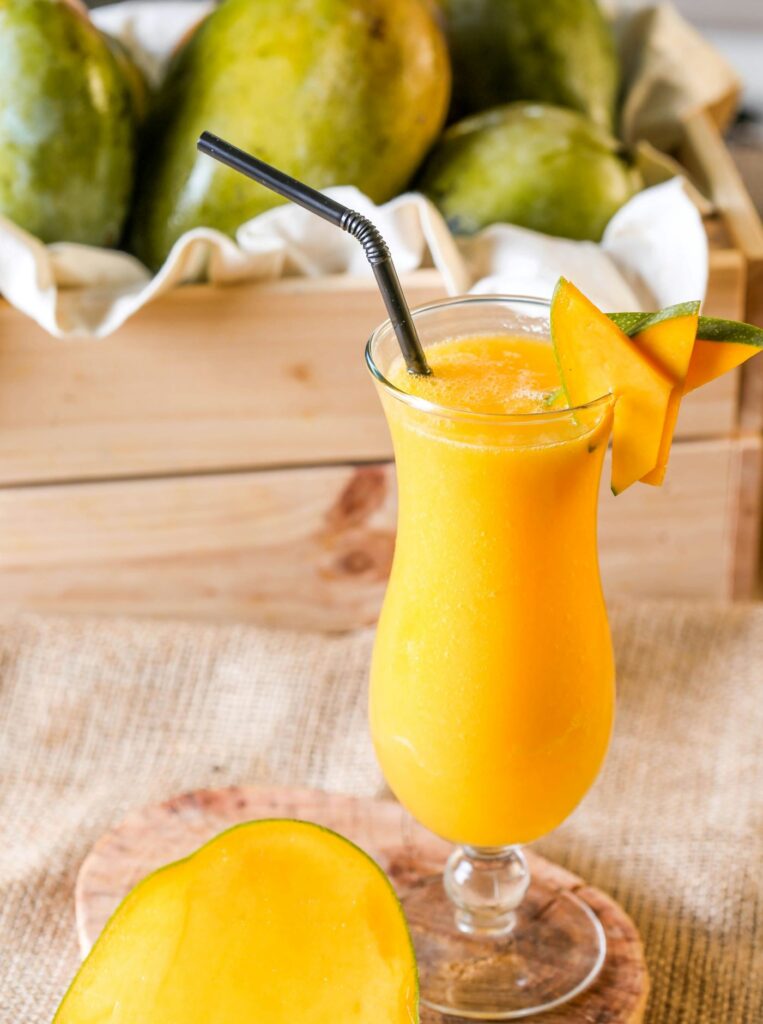Diet & Nutrition, What to Eat and Drink
Why Is Mango A Superfood
From the world of superfoods, the mango is the star of the show. Mangoes are one of the most nutritious foods you can eat. They are naturally sweet and juicy, which makes them very appealing. This article goes into detail about the scientific reasons why mangoes are not only a tasty treat but also a great source of antioxidants, nutrients, and health benefits. Join us on a trip to learn about the amazing benefits of mangoes that make them a real superfood, from making your immune system stronger to giving you glowing skin. Get ready to be surprised as we talk about how this “king of fruits” can help your health in many ways.
Nutritional Benefits of Mango
Mango is not only a tasty fruit, but it also contains a variety of nutritional benefits. One cup of sliced mango contains nearly 100% of the daily necessary amount of vitamin C, which is essential for immune system function and collagen formation. It is very high in vitamin A, accounting for more than 25% of the required daily dose. This vitamin is necessary for keeping clear vision, stimulating growth and development, and supporting reproductive health. It also contains fiber, which assists digestion by supporting regular bowel motions and reducing constipation. It is a guilt-free alternative for people trying to maintain a healthy weight because it has few calories and fat.
Mangoes is particularly high in potassium, a vital mineral that promotes optimal heart function and blood pressure levels. This nutrient is especially important for people who have hypertension or are at risk of developing cardiovascular disease. Furthermore, mangoes has a variety of B vitamins, including folate, which is essential for cell growth and development, making it an excellent choice for pregnant women.

Antioxidant Properties of Mango
Mango contains potent antioxidants that protect the body from free radicals. Antioxidants including quercetin, astragalin, and gallic acid help to reduce oxidative stress and prevent cell damage. Studies have revealed that mango’s high antioxidant content may help reduce the risk of chronic diseases such as heart disease, certain types of cancer, and age-related macular degeneration. Including mangoes in your diet can be a tasty way to increase your antioxidant consumption and support overall health.

Mango and Its Role in Promoting Digestion
In addition to its nutritious value, mango is known for its capacity to promote healthy digestion. Mango’s fiber content helps to regulate bowel motions and prevent constipation. It also serves as a prebiotic, supplying sustenance to good intestinal microbes. These bacteria are critical to maintaining a healthy gut microbiome, which is required for appropriate digestion and nutritional absorption. Including mangoes in your diet can help support a healthy digestive tract and improve overall gut health.

Mango and Its Impact on Skin Health
Mango not only nourishes the body from within, but it also promotes healthy, bright skin. Its strong vitamin C content encourages collagen formation, which helps preserve skin suppleness and firmness. Mango is also high in beta-carotene, a precursor to vitamin A that is known for its skin-healing benefits. Consuming mangoes on a daily basis can help improve skin tone, minimize the appearance of wrinkles, and protect the skin from UV exposure. So, the next time you want glowing skin, look for a juicy mangoes rather than pricey skincare products.

Mango and Its Potential Anti-inflammatory Effects
According to research, mango’s antioxidants may have powerful anti-inflammatory capabilities. Chronic inflammation has been related to a variety of disorders, including cardiovascular disease, diabetes, and certain types of cancer. Mango contains chemicals such mangiferin and quercetin, which have been demonstrated to lower inflammatory indicators in the body. Incorporating mangoes into your diet may lessen your risk of developing chronic inflammatory illnesses while also promoting general health and well-being.

Mango and Its Contribution to Eye Health
Mango can assist support eye health. It has significant levels of vitamin A and beta-carotene, which are needed for excellent vision and can help prevent age-related macular degeneration and nightblindness. These nutrients function as antioxidants, protecting the eyes from free radical damage and lowering the development of cataracts. Including mangoes in your diet is a tasty approach to nourish your eyes and keep clear eyesight.
Incorporating Mango into a Healthy Diet
It’s easier to incorporate mango into your diet than you might imagine.
- Mango is a pleasant snack that can be enjoyed on its own or added to smoothies, salads, or salsas. It also gives a blast of flavor and a variety of health advantages.
- Blend mango, yogurt, and a handful of spinach for a nutritious and delicious smoothie.
- Alternatively, add sliced mangoes to a fresh salad for a tropical flavor.
Mango may be incorporated into a variety of dishes, giving it a versatile and delectable complement to any healthy diet.

Delicious and Nutritious Mango Recipes
Looking for inspiration to get started with mango? Here are some tasty and nutritious meals to try:
- Mango Salsa: For a colorful and pleasant salsa, mix chopped mangoes, red onion, jalapeno, lime juice, and cilantro. Serve it with grilled fish or on tacos.
- Mango Coconut Chia Pudding: Combine chia seeds, coconut milk, and sliced mangoes in a jar. Allow to sit overnight for a creamy, nourishing breakfast or snack.
- Mango Quinoa Salad: Cook quinoa according to package directions and allow to cool. For a light and tasty salad, combine chopped mangoes, cucumber, red bell pepper, mint, and a dressing made of lime juice and olive oil.
- Mango Smoothie Bowl: Combine frozen mangoes, banana, spinach, and almond milk and blend until smooth. Pour the mixture into a bowl and top with oats, sliced mangoes, and honey for a delicious and nutritious breakfast.
Conclusion
Mango certainly merits its superfood status. This fruit, with its high nutritional value, antioxidant capabilities, and potential health benefits, provides numerous benefits to individuals seeking to live a healthy lifestyle. Mango is a flexible and delightful addition to any diet, with benefits ranging from immune function and digestion to skin and eye health. So, the next time you eat a luscious and succulent mangoes, relish not only its delicious flavor but also the numerous health benefits it offers. Incorporate mangoes into your meals and discover the benefits of this tropical superfood.


